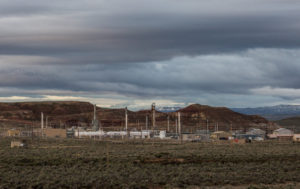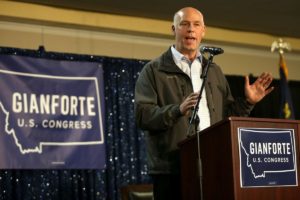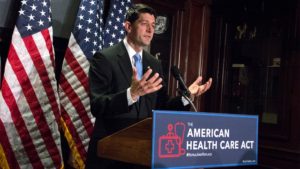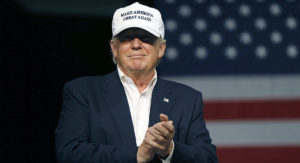
It might be that two decades ago, I would be committing heresy by espousing energy development that does not emphasize oil and natural gas.
Not so these days. The Texas Panhandle — indeed much of West Texas — is sprouting wind farms faster than spring dandelions. Wind is a clean source of renewable energy. Yes, it’s expensive to produce, but those who produce it must find ways to keep the turbines turning at a price they can afford.
That all said, the Environmental Protection Agency is being run by a guy who is in the hip pocket of fossil fuel producers. EPA Administrator Scott Pruitt once served as Oklahoma attorney general; he sued the daylights out of the EPA whenever he could.
Now he runs the agency.
A lengthy New York Times story published Sunday detailed how Pruitt’s work as AG benefitted companies such as Devon Energy, an Oklahoma-based fossil fuel producer.
Pruitt is overseeing a rolling back of EPA rules and regulations that are helping his good friends at Devon, according to the Times.
Here’s what I do not get: How is it that oil supposedly supersedes the production of clean energy alternatives? Pruitt seems to think the EPA needs to roll back regulations intended to mandate more fuel-efficiency, cleaner production of fuels that protect our air and water, and development of cleaner alternatives to coal and oil.
Pruitt and Donald Trump both bemoan what they insist is a “disastrous” energy policy. Is it? The United States has become the world’s leading producer of oil; the nation has reduced dramatically its dependence on imported oil; meanwhile, we have invested over the past eight years into development of wind and solar energy.
I must declare that I also support nuclear power as an alternative to oil production. Utility companies have gone many miles in the development of safer nuclear technology. Yes, disposal of nuclear waste is an issue, but its disposal can be done in an environmentally responsible manner.
The president’s Cabinet-level appointments have been, to say the very least, a mixed bag. I think he has more clunkers than winners in his Cabinet, although I do think a great deal of Defense Secretary James “Mad Dog” Mattis and Homeland Security Secretary John Kelly; national security adviser H.R. McMaster also is a keeper.
EPA boss Pruitt, though, remains among the worst of Trump’s picks.
As the Times reported: “Mr. Trump and his team believe that loosening the regulatory grip on business will help the economy, create jobs and allow Americans ‘to share in the riches,’ as he said during the campaign. But in the energy field, environmentalists, Democrats and even some in the industry fear the efforts will backfire, harming health and safety without creating much economic benefit.”
Doesn’t the EPA boss know that the very title of the agency he leads requires him to “protect” the environment?








